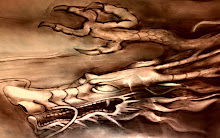Growing up in Australian suburbia, we all had the inking the Asian education ethic was a far cry from the lame aspirations of underachievement dogging the average Aussie. What this inkling didn’t even nearly give us, was the full picture of educational expectations in China. As it turns out, Chinese-Australians were pretty laid back compared to Chinese from China.
Schooling in China starts as early as two. By schooling, I do not mean day-care or finger-painting, nor do I mean an hour-and-a-half in a sandpit with other toddlers, and an adoring parent waving at you lovingly from outside the kindy gate. Entrance for two year olds into China’s most prestigious pre-schools requires a hefty round of testing and the submission of a resume listing talents and achievements. These ‘achievements’ do not include obvious toddler triumphs, such as being potty-trained or weaned from a mother’s tit, but glorious musical, linguistic and athletic feats.
For many toddlers, acceptance into these prestigious schools also marks the start of boarding school. At boarding school, these small children are expected to shower, feed and dress themselves, attend full days of schooling, and show their filial gratitude by achieving highly. Many a sympathetic teacher has been known to complete the tasks themselves, before drilling the toddlers with the question and answer: “Who did this?” – “I did this!” “Who did this?” – “I did this!”
For many, being a good parent in China means providing the most expensive and prestigious education available, and pressuring your child to over-achieve. As judgemental as it may sound, I think it is wrong, senseless, and detrimental to any child’s wellbeing. Children should be with their parents. There are thousands of ways to bring up healthy, happy and intelligent children, and this is not one of them.
*















































